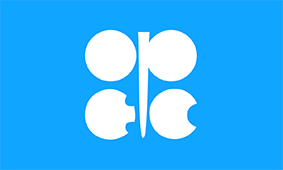
Opec ECB says glut persists, monitoring needed

The ECB agreed that the supply "glut is still there," a participant at the meeting told Argus.
The agreement between Opec and 10 non-Opec countries — collectively known as Opec+ — aims to curb collective output by a combined 1.2mn b/d. It expires on 31 March.
Early indications suggest that Opec+ may extend the deal beyond March when they meet next week in Vienna. Oman's oil minister Mohammed bin Hamad al-Rumhy said earlier this month that an extension was the most likely outcome. Since then, Opec and the IEA have projected an extended challenge from US shale production to the group's market share.
Russia's largest crude producers "all proposed that we remain in the deal, with the same quotas, and meet and discuss [further strategy] at the end of the first quarter", Lukoil first executive vice-president Ravil Maganov said after a meeting yesterday with Russian energy minister Alexander Novak.
The Opec and non-Opec Joint Technical Committee (JTC), which reviews market conditions, will convene on the 4 December, and the Joint Ministerial Monitoring Committee (JMMC) will meet on 5 December. Opec will also meet that day, and the wider group on 6 December.
By Rowena Edwards


Trump weighs using $2 billion in CHIPS Act funding for critical minerals

Codelco cuts 2025 copper forecast after El Teniente mine collapse

Electra converts debt, launches $30M raise to jumpstart stalled cobalt refinery

Barrick’s Reko Diq in line for $410M ADB backing

Abcourt readies Sleeping Giant mill to pour first gold since 2014

Nevada army depot to serve as base for first US strategic minerals stockpile

SQM boosts lithium supply plans as prices flick higher

Viridis unveils 200Mt initial reserve for Brazil rare earth project

Tailings could meet much of US critical mineral demand – study

Kyrgyzstan kicks off underground gold mining at Kumtor

Kyrgyzstan kicks off underground gold mining at Kumtor

KoBold Metals granted lithium exploration rights in Congo

Freeport Indonesia to wrap up Gresik plant repairs by early September

Energy Fuels soars on Vulcan Elements partnership

Northern Dynasty sticks to proposal in battle to lift Pebble mine veto

Giustra-backed mining firm teams up with informal miners in Colombia

Critical Metals signs agreement to supply rare earth to US government-funded facility

China extends rare earth controls to imported material

Galan Lithium proceeds with $13M financing for Argentina project

Kyrgyzstan kicks off underground gold mining at Kumtor

Freeport Indonesia to wrap up Gresik plant repairs by early September

Energy Fuels soars on Vulcan Elements partnership

Northern Dynasty sticks to proposal in battle to lift Pebble mine veto

Giustra-backed mining firm teams up with informal miners in Colombia

Critical Metals signs agreement to supply rare earth to US government-funded facility

China extends rare earth controls to imported material

Galan Lithium proceeds with $13M financing for Argentina project

Silver price touches $39 as market weighs rate cut outlook

















